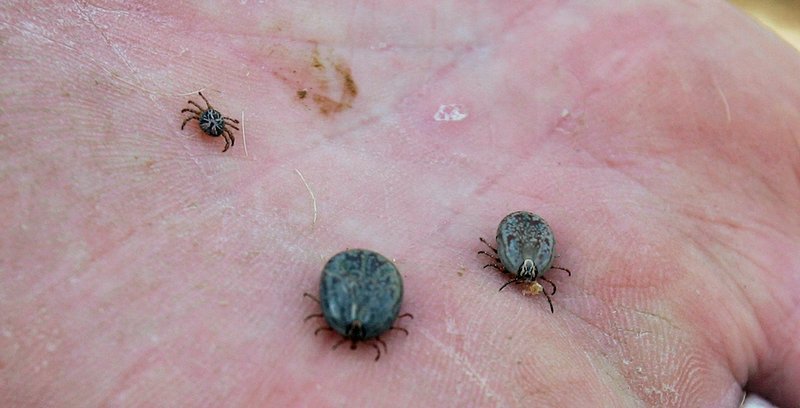Arkansans should be on the lookout for ticks, which will be joining in the summer fun and whose bites can cause serious illness if not found and treated, a UA extension official warns.
Kelly Loftin, an associate professor of entomology in the University of Arkansas System, said in a statement Monday that the cold winter didn't kill off the population of ticks in Arkansas, the way it does other bugs.
"Tick species found in Arkansas have adapted to survive harsh winters," Loftin said.
The most common species of tick found in Arkansas are the lone star and American dog ticks, according to Loftin.
The Heartland virus, a disease linked to the lone star tick, has already been reported in Oklahoma, Missouri and Tennessee. The American dog tick is linked to Rocky Mountain spotted fever.
People who wish to avoid these biting arthropods should stay away from dense vegetation, tall grass and zones where open fields meet forested areas, according to Loftin. Creating a tick-safe zone in the yard by clearing tall grass and brush around homes, and setting wood chips or gravel between a yard and a wooded area can also help to keep ticks out.
If people find themselves in an area where ticks may be present, they should wear light-colored clothing and use tick repellants containing DEET or clothing-only repellents containing permethrin, according to Loftin. People should check themselves and any children or pets frequently for ticks; shower or bathe as soon as possible after being in a tick-infested area, in order to wash off crawling ticks or find attached ticks; and put clothes in the dryer on high heat to kill remaining ticks, he said.
If a person finds a tick attached, he should use fine-tipped tweezers and pull upward with steady pressure. Avoid twisting or jerking the tick, Loftin said. Motions like that can cause the tick's mouth to break off and remain in the skin.
"Thoroughly clean the bite area and your hands with alcohol, an iodine scrub, or soap and water after removing a tick," Loftin said.
Following these tips should help people avoid exposure to ticks and limit disease transmission this summer, Loftin said.
